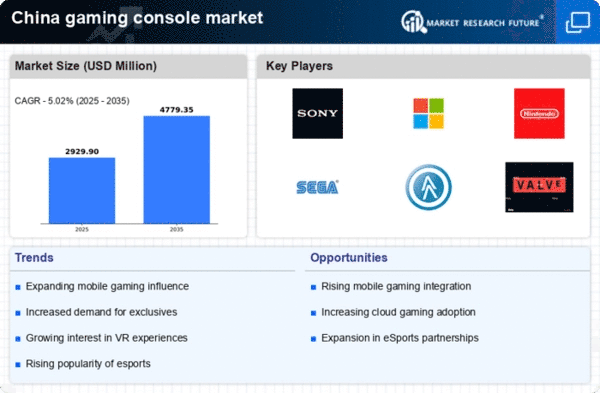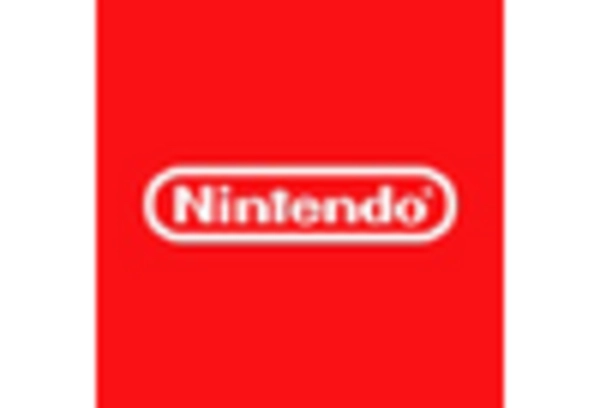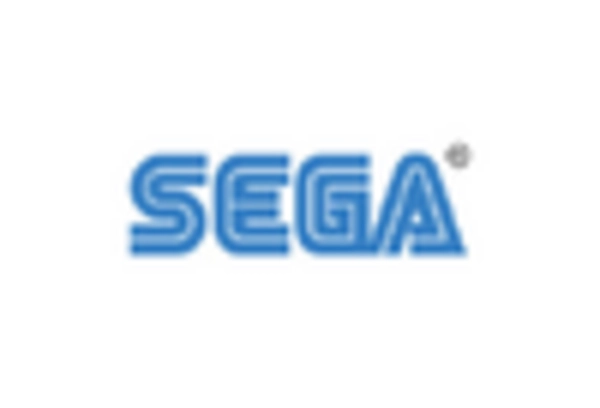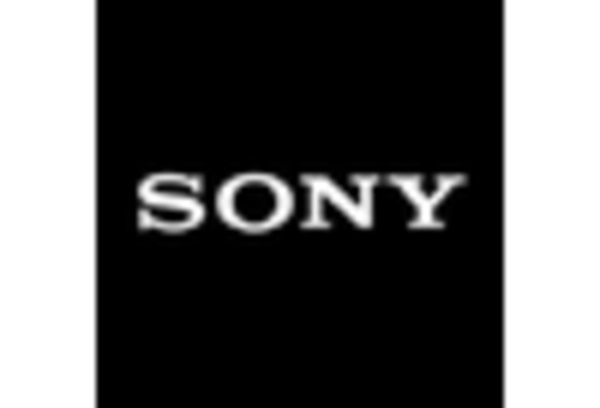Expansion of E-Sports
The burgeoning e-sports scene in China is emerging as a crucial driver for the gaming console market. With the government actively promoting e-sports as a legitimate sport, the industry is witnessing unprecedented growth. Recent estimates suggest that the e-sports market in China could reach $1.5 billion by 2025, creating a substantial demand for gaming consoles that support competitive gaming. The gaming console market is likely to benefit from this trend, as consumers seek high-performance consoles that enhance their gaming experience. Furthermore, the rise of e-sports events and tournaments encourages players to invest in advanced gaming systems, thereby propelling sales and fostering a competitive environment that attracts both casual and professional gamers.
Innovative Game Titles
The introduction of innovative and exclusive game titles is a significant driver for the gaming console market. In China, the gaming landscape is evolving, with developers focusing on creating unique content that resonates with local audiences. The gaming console market is experiencing a surge in demand for consoles that offer access to these exclusive titles, which often feature culturally relevant themes and narratives. As game developers invest in high-quality production and storytelling, consumers are more likely to purchase consoles to experience these new offerings. This trend indicates that the success of the gaming console market is closely tied to the availability of compelling game titles, which can influence consumer purchasing decisions and drive overall market growth.
Increasing Disposable Income
The rise in disposable income among consumers in China appears to be a pivotal driver for the gaming console market. As individuals experience greater financial freedom, they are more inclined to invest in entertainment options, including gaming consoles. Recent data indicates that the average disposable income in urban areas has increased by approximately 8% annually, which correlates with a surge in gaming console sales. This trend suggests that as more households can afford luxury items, the demand for gaming consoles is likely to grow. Furthermore, the gaming console market benefits from this economic shift, as consumers are willing to spend on high-quality gaming experiences, leading to increased competition among manufacturers to offer innovative products that cater to this expanding market segment.
Youth Demographic Engagement
The youth demographic in China, particularly those aged 18 to 34, represents a significant portion of the gaming console market. This age group is characterized by a strong affinity for digital entertainment, with studies indicating that over 70% of young adults engage in gaming activities regularly. The gaming console market is thus strategically positioned to capitalize on this trend, as manufacturers tailor their offerings to meet the preferences of younger consumers. Additionally, the increasing prevalence of social media and online communities fosters a culture of gaming, further driving engagement. As this demographic continues to grow, the potential for sustained revenue generation within the gaming console market remains robust, suggesting a promising outlook for future sales.
Advancements in Online Connectivity
Advancements in online connectivity are transforming the gaming console market in China. With the expansion of high-speed internet access, more consumers are engaging in online gaming experiences. Recent statistics reveal that over 60% of gamers in China participate in online multiplayer games, which necessitates the use of advanced gaming consoles. The gaming console market is adapting to this shift by incorporating features that enhance online connectivity, such as cloud gaming capabilities and social networking integration. This evolution not only improves the gaming experience but also encourages consumers to invest in the latest consoles that offer superior online functionalities. As connectivity continues to improve, the potential for growth in the gaming console market remains promising.
















